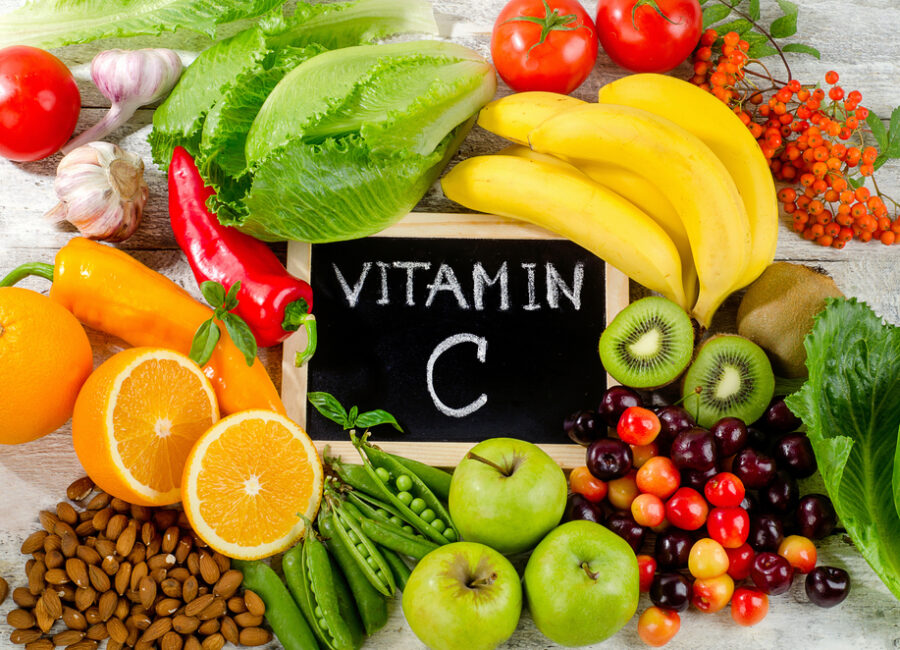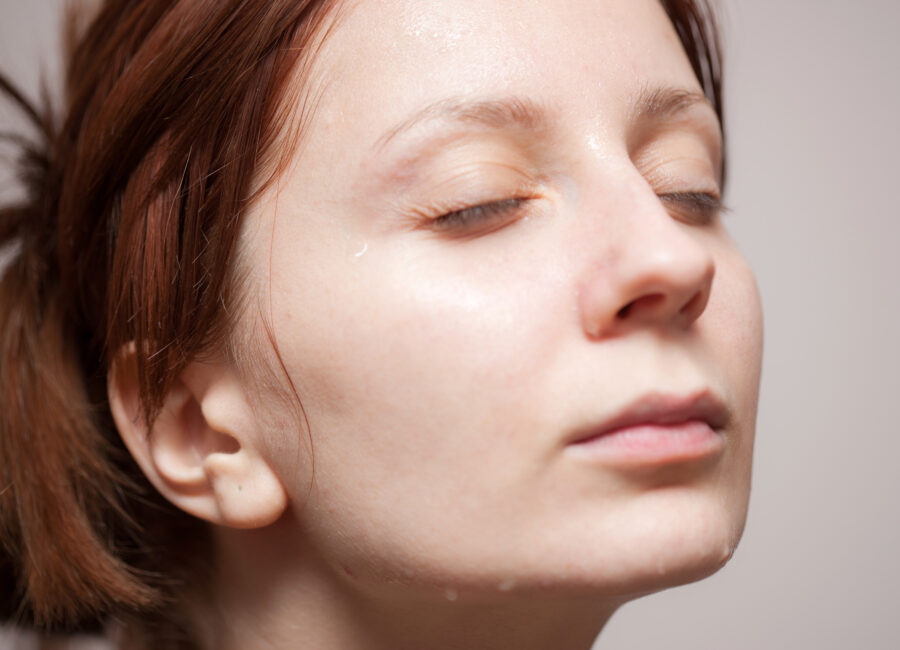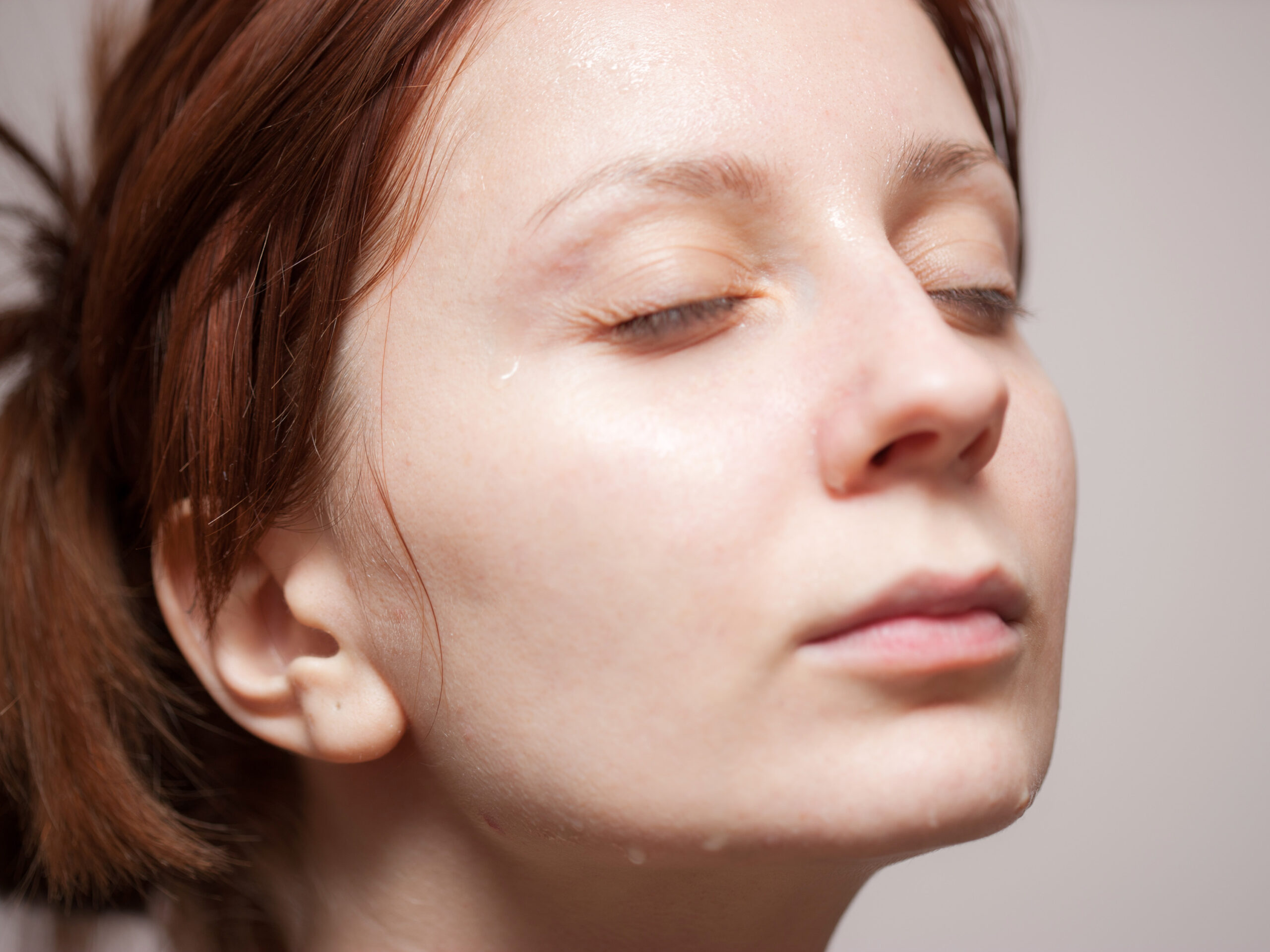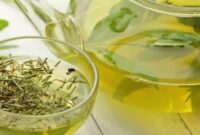
So as not to be confused, consider the various choices of dry skin vitamins that can restore your skin’s moisture.
Various vitamins for dry skin
Depending on the cause, there are various ways to treat dry skin. For example, by applying moisturizer regularly, you can change your lifestyle to make it healthier by consuming enough water in your body and taking specific vitamins for your skin.
The various types of vitamins for dry skin that you can meet every day are as follows.
1. Vitamin E

Vitamin E is one of the vitamins for the skin that the body needs because of its role as an antioxidant,
The function of antioxidants for the skin is to protect it from various factors that cause skin damage, primarily due to exposure to ultraviolet (UV) rays.
Generally, the body produces vitamin E through sebum, a natural oil secreted by skin pores. Sebum can help keep the skin from drying out if the amount is balanced. Another benefit of vitamin E for the skin is strengthening immune function in the skin layer, helping skin cell division, and maintaining overall skin health.
Then, its anti-inflammatory effect is helpful for soothing dry skin that is quickly red, inflamed, and itchy.
You can get vitamin E intake through food sources, such as eggs, broccoli, spinach, salmon, and nuts and seeds, such as almonds, hazelnuts, and sunflower seeds.
You can also take skin supplements containing vitamin E available on the market. However, consult your doctor first to determine the dosage and recommendations for the right vitamin E supplement according to your condition. The topical use of vitamin E from facial moisturizing products is also believed to maintain skin moisture.
2. Vitamin D
You may know the benefits of vitamin D in helping calcium absorption in the bones. Vitamin D is also very beneficial for skin health and dehydrated skin. There are cells called keratinocytes in the outer layer of the skin, also known as the epidermis. These cells can convert cholesterol in the body into vitamin D.
Later, vitamin D will be taken up by the liver and kidneys and then distributed throughout the body to help form healthy skin cells.
In a study published in Skin Pharmacology and Physiology, the function of vitamin D is vital in protecting the skin, promoting skin cell growth, and maintaining the skin’s immune system so that it acts as the first line of defence against harmful pathogens.
Lack of vitamin D in the body is often associated with skin diseases, including eczema and psoriasis, caused by dry skin conditions.
Experts have found that taking vitamin D supplements has been shown to significantly improve the symptoms of skin disorders that cause dry and itchy skin, including eczema.
It is evidenced in a small study for 12 weeks involving 50 women. The results show that daily consumption of nutritional supplements containing 600 IU of vitamin D has increased skin hydration.
In addition to taking vitamin D supplements, you can meet their daily needs through foods such as salmon, button mushrooms, milk, fortified cereals with vitamin D, and beef liver.
3. Vitamin C

Like vitamin E, vitamin C for the skin also acts as an antioxidant. It can protect the skin from damage caused by free radicals and environmental factors, such as vehicle fumes, pollution, and exposure to UV rays.
Vitamin C also produces collagen, a protein that makes up the skin and various body tissues, which helps reduce wrinkles on the face and keeps the skin healthy, free of dullness, and not dry.
A study published in the journal Nutrients states the benefits of vitamin C can improve the function of the skin layer and prevent the loss of fluid from skin tissue. Thus, it can prevent dry skin conditions.
Several other studies also prove combining vitamin C and other nutrients can increase skin moisture.
It is evidenced in a study in Clinical, cosmetic, and investigative dermatology study conducted for six months involving 47 men.
The results are known to take a supplement containing 54 milligrams of vitamin C, marine protein, and other nutrients that can significantly increase skin hydration compared to the placebo group.
To meet the vitamin needs for dry skin, you can consume fruits, such as oranges, strawberries, cranberries, blueberries, blackberries, apples, melons, and guavas. Other sources of vitamin C are also found in vegetables, such as broccoli and spinach.
4. Vitamin A
The following vitamin for dry skin is vitamin A. Vitamin A is good for maintaining eye health.
But more than that, various benefits of vitamin A for the skin that it’s a shame to miss. The skin will feel dry and itchy if the body lacks vitamin A intake.
As an antioxidant, the benefit of vitamin A for the skin is to protect it from sun exposure. The dangers of sun exposure can break down collagen in the skin so that dry skin, wrinkles, and other signs of premature ageing can appear.
According to research published in Advances in Dermatology and Allergology, vitamin A can hydrate and moisturize the skin and improve skin barrier function.
To get vitamin A intake, you can eat certain foods, such as carrots, green vegetables, sweet potatoes, chicken liver, and eggs. Mango and papaya are also fruits that are rich in vitamin A.
Apart from consuming foods containing vitamin A, one can obtain this dry skin vitamin through skincare products, including facial creams or serums.
Several vitamin A derivatives widely used in these products are retinoids, retinol, tretinoin, and isotretinoin.
Other nutrients for dry skin

In addition to vitamin supplements for dry skin, you may need other nutrients to improve the condition of your skin to keep it healthy and moisturized.
Here are various types of nutritional content that can be used to treat dry skin.
Collagen
The body’s collagen production decreases as we age, resulting in dry skin and wrinkles.
Several studies published in the Journal of Drugs in Dermatology found that collagen supplements can help increase skin hydration while reducing wrinkles.
Another study in the journal Skin Pharmacology and Physiology conducted on 69 women found that consumption of collagen as much as 2.5 – 5 grams per day for eight weeks was proven to increase skin elasticity and hydration significantly than the placebo group.
In addition to taking supplements, you can fulfil your skin’s nutritional intake through collagen foods.
2. Lutein and zeaxanthin
Both types of carotenoids are potent antioxidants; they cannot produce in the body. Therefore, you need to get it through food intake.
A study published in Clinics in Dermatology found that taking lutein and zeaxanthin supplements can increase skin moisture, preventing dry skin conditions.
Not only from health supplements, but you can also consume green vegetables, such as kale, kale, and spinach, as the best way to intake lutein and zeaxanthin.
3. Hyaluronic acid
Hyaluronic acid is the main ingredient in some skincare products, especially moisturizers. This substance is known to work by increasing skin hydration.
4. Probiotics
Dry skin conditions are generally prone to inflammation. Given that inflammation can be caused by a compromised immune system and most of your digestive system, it is advisable to consume foods containing probiotics.
However, it should note that the link between the consumption of probiotics in preventing dry skin still requires further research.
5. Ceramide
In addition to hyaluronic acid, ceramides are the main ingredient in skincare for dry skin. Substances derived from these fat molecules are good for maintaining healthy skin.
Several studies have found that the benefits of ceramides can increase skin hydration to overcome dry skin.
6. Aloe vera
Aloe vera is known as a type of natural skin moisturizer. A study in Japan found that giving fatty acid supplements from aloe vera for 12 weeks increased skin moisture and elasticity.
7. Zinc
Zinc can also be a nutritional choice for dry skin. Zinc can protect the skin from damage caused by exposure to ultraviolet (UV) rays because of its role as an antioxidant.
Not only that, zinc or zinc also contains anti-inflammatory substances that can prevent dry skin and redness. If the body lacks zinc, the skin will appear to have an itchy rash similar to eczema.
To avoid zinc intake, you can eat various foods, such as oysters, crab, shrimp, mushrooms and spinach. You can also apply a lotion or cream containing zinc to relieve dry skin, rashes, and itching.
8. Fish oil
You can also take fish oil to prevent dry skin. In a study in the Marine Drugs, fish oil contains docosahexaenoic acid and eicosapentaenoic acid. Two essential fatty acids with anti-inflammatory properties that treat skin inflammation problems.
Taking fish oil supplements is also believed to increase skin hydration. It is evidenced in a study in the Journal of Dermatological Science which proved that consumption of fish oil could increase skin hydration by 30% after consumption for 60 consecutive days.
Interestingly, the benefits of fish oil can reduce the risk of skin inflammation and protect the skin from exposure to harmful sun rays.




